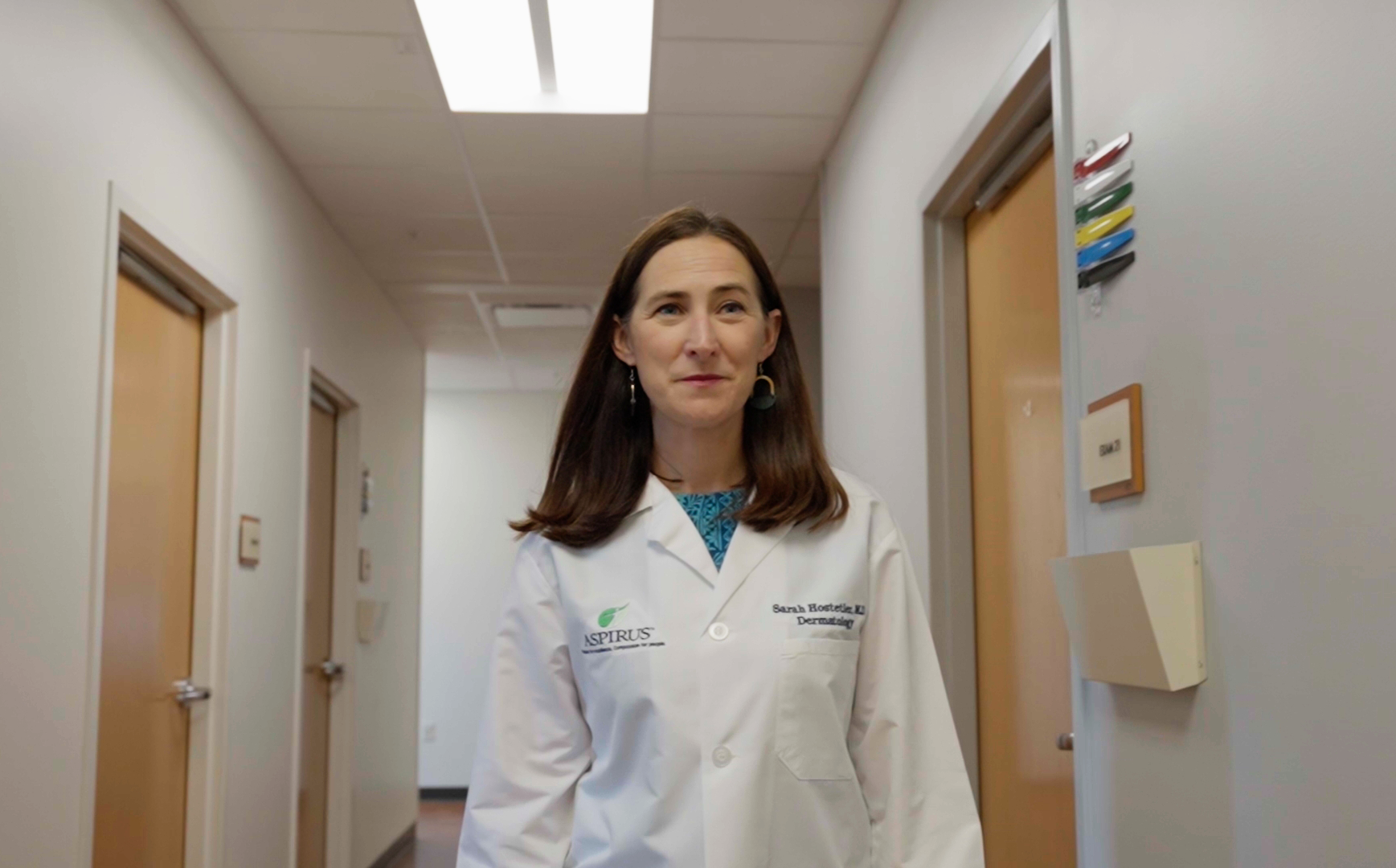Acne is Common, but Help is Available
9/15/2025

Dr. Sarah Hostetler, Aspirus Dermatologist
Acne is the most
common skin condition in the United States, affecting up to 50 million
Americans each year, according to the American Academy of Dermatology (AAD).
While many teens expect to deal with breakouts, acne can last well into
adulthood and take a toll on both physical and emotional health.
“Acne can come in
several different varieties. Commonly we call them whiteheads, blackheads or
pus bumps,” said Sarah
Hostetler, MD, dermatologist at Aspirus Health. “Medically we refer to
those as open and closed comedones, papules, pustules, cysts, and nodules. Most
commonly, acne will affect the face, chest, back and sometimes the shoulders as
well.”
For men, acne often
subsides by about age 25. For women, it can be more of a lifelong experience.
Many women do not develop acne until their 30s or 40s.
According to Dr.
Hostetler, the most common reasons patients seek professional acne care
include:
- Scarring – Permanent
scars forming from breakouts.
- Cystic or deep
lesions – Larger, painful breakouts that do not respond to over-the-counter
products.
- Mental health impact
– Acne can contribute to stress, anxiety, or depression, especially among
teens.
- Lack of improvement
– When over-the-counter options have not delivered results.
“When we treat acne,
we view it as a ladder,” Dr. Hostetler explained. “Over-the-counter options are
a good starting point, but when those are not enough, dermatologists can create
customized plans that may include topical prescriptions, short-term medications,
or advanced treatments like isotretinoin. Whatever the person needs and
wherever they are at in their acne journey, we have so many treatments that we
can really dial into a great plan for each individual.”
In addition to
medical treatment, lifestyle choices can play a role. Research shows that
high glycemic foods such as soda, candy, and other highly processed items
can make acne worse. Eating a balanced diet with fruits, vegetables, and lean
proteins may help keep skin clearer.
Still, Dr. Hostetler
cautions against “quick fixes” that can harm skin. “Some people try a new
product every week, use toners that dry the skin, or only spot treat breakouts.
But effective acne care means building consistent habits, giving products time to
work, and caring for the whole area of skin prone to acne.”
Aspirus Health
encourages anyone struggling with acne, especially those experiencing scarring,
painful lesions, or emotional stress, to talk with a dermatologist.
Professional treatment can provide long-term relief and prevent lasting
damage.

Back to all Posts